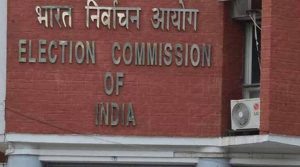Water companies should be nationalized instead of being privately owned.
We must not let private companies continue raising bills while people struggle to afford basic necessities like food and heat.

It is truly alarming to hear that your water bill could potentially skyrocket by a staggering 44%. Private water companies are pushing for this increase, all while their shareholders continue to receive dividends. Can you imagine an extra £183 coming out of your pocket over the next five years? It's a significant amount that could greatly impact your budget.
Thankfully, the regulatory body Ofwat has stepped in and proposed a limit on household bill increases to an average of £19 per year until 2030. However, the water companies have disputed this, claiming that it won't be enough to address issues such as sewage leaks. These proposed price hikes can still be challenged by the companies, with a final decision expected later this year. But in my opinion, we should not accept these demands and reward failure.
That is why the Green Party is urging the new Prime Minister, Keir Starmer, to take water companies into public ownership. Providing such a basic human need as water should not be driven by profit. It is a matter of social and environmental justice, as well as a practical necessity.
In fact, payouts in dividends to shareholders of water companies between 1991 and 2019 amounted to a staggering £57 billion. This is almost half of what was spent on infrastructure during the same period. By bringing water back into public hands, the government can invest in improving our aging infrastructure and cleaning up our rivers, waterways, and coastlines. This would not be possible if such a large portion of funds continues to flow to shareholders and high executive salaries.
But is it feasible to take water companies into public ownership? According to the lobbying group We Own It, about 90% of water services around the world are publicly owned. However, in England, over 90% of water companies are owned by international investors, private equity funds, and banks. It ultimately comes down to political will. If the government commits to this course of action, existing regulations can be used to bring failing private companies under public ownership and accountability.
For example, the water regulator has the power to stop dividend payments if they jeopardize the financial stability of the company. They can also take enforcement action against companies that do not link dividend payments to performance. If these rules were enforced, the appeal of investing in water companies would diminish, and without private investment, these monopolies would eventually disappear.
We often hear private water companies lamenting about their potential failure without cash injections from investors. In my opinion, if they are struggling to stay afloat, then we should let them sink. In terms of the cost of bringing these companies into public ownership, Environment Secretary Steve Reed has stated that it could cost taxpayers billions. However, given the dire state of the industry, it may only require a small compensation payout to shareholders.
The UK and European appeal courts have ruled that the level of compensation can be left to the discretion of parliament. Past Labour governments have also taken similar actions, such as when Railtrack was brought under government control in 2002 to form Network Rail. Similar powers exist for the government to take over water companies.
The new government has promised to take action against the illegal dumping of sewage into our waterways. They have acknowledged that stricter measures should have been implemented earlier to ensure that money is used to fix the sewerage system, rather than being funneled into bonuses and dividends.
It is clear that we cannot allow private companies to continue hiking bills, especially when so many people are already struggling to afford basic necessities. We also cannot turn a blind eye to the contamination of our waterways. Real change is needed to stop this cycle of profits for shareholders and filth in our rivers.
The answer is apparent - bringing water companies back into public ownership will benefit both the people and the environment. It will put an end to profiteering, lower bills, and protect our precious natural resources. As co-leader of the Green Party and MP for Bristol Central, I strongly believe that this is the way forward. Do you have a story to share or a viewpoint to express? Let us know in the comments below.










